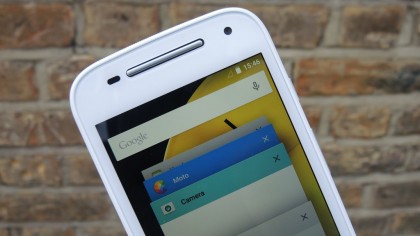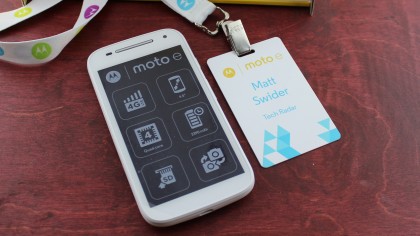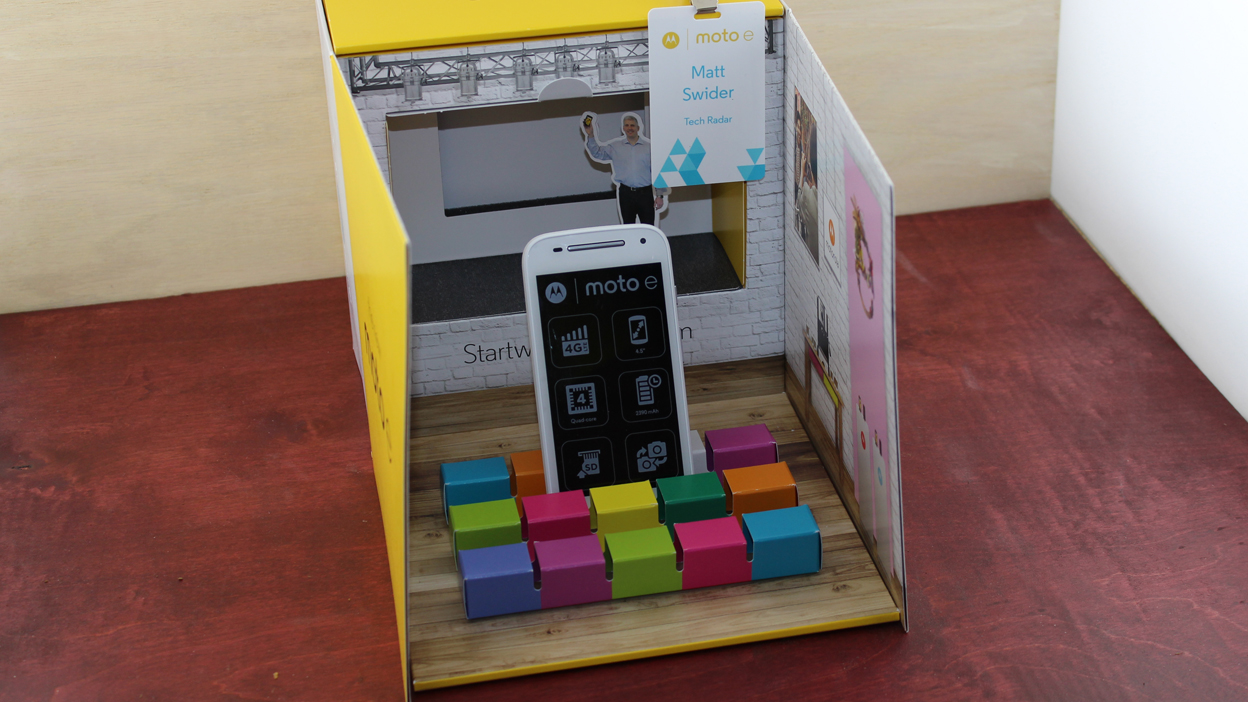Why you can trust TechRadar
Performance
Under the Moto E's hood is a quad-core Qualcomm Snapdragon 410 chipset clocked at 1.2GHz. It's a set up we've seen a variety of affordable handsets over the past 12 months and it seems to be working well for almost everybody.
It's a big upgrade over the Snapdragon 200 chipset we saw in the Moto E last year and the 3G version of this year's handset.
This year's set up also includes 1GB of RAM and an Adreno 306 GPU. I ran a few tests to see how the set up handled it all. On GeekBench 3 it sent back three different scores which we took an average of to find 1421.

That's a pretty impressive set up considering some of the low scores we've seen before at the low end of the market.
The cheapest 4G phone was the EE Kestrel released last year and it still is in the same price bracket as the Moto E (2015) but only got a score of 1190 on the same test. That's quite a bit lower than the Moto E, which seems to be beating the competition quite well.
While using the handset I experienced a little bit of lag when trying to open up the camera app a few times but never really identified anything of concern.
The phone did heat up a little when playing Real Racing 3, but managed to keep up with the high frame rate of an extremely intensive game.
Sign up for breaking news, reviews, opinion, top tech deals, and more.
Battery life
The Moto E has a jacked up battery, jumping from a 1980mAh power pack on the first to a 2390mAh battery this time around. It didn't do a bad job last time around as it managed to survive the day on mixed usage, but Motorola has seen fit to increase it again.
I ran the standard 90 minute NyanGareth test video at full screen brightness from a full charge and it came out the other side with 78% charge left over. That's quite a bit of an upgrade on the original Moto E, which came out with 72% meaning if you're planning on watching a bit of video this may be a good option.

To test it even further I ran it while on a 60% brightness and found it lasted quite a bit longer coming out with 84% battery. If you're watching video just turn the brightness down a little and you'll save quite a bit of the battery.
If that isn't enough though you'll be able to save on battery with the battery saver mode that can be set up to come on at either 5% or 15% battery life.
Current page: Performance and battery life
Prev Page Key features and interface Next Page The essentials and camera
James is the Editor-in-Chief at Android Police. Previously, he was Senior Phones Editor for TechRadar, and he has covered smartphones and the mobile space for the best part of a decade bringing you news on all the big announcements from top manufacturers making mobile phones and other portable gadgets. James is often testing out and reviewing the latest and greatest mobile phones, smartwatches, tablets, virtual reality headsets, fitness trackers and more. He once fell over.
